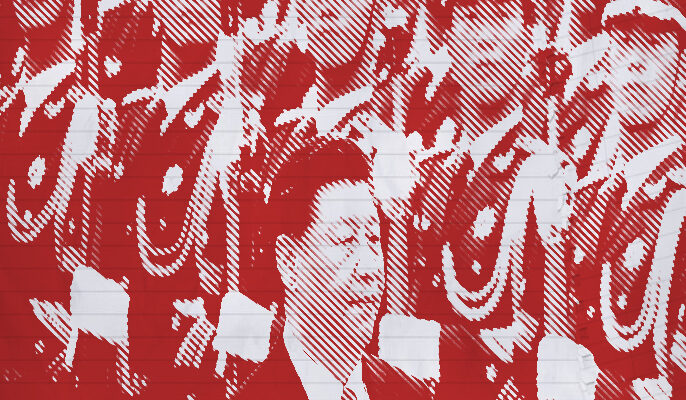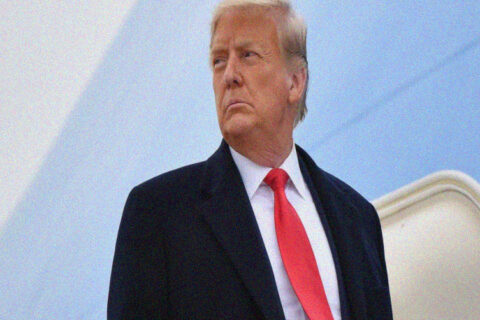It is becoming more and more apparent that the event that was once declared to be impossible by neoliberal ideologues will soon come to pass – a major war between China and the United States. It will be huge, as it will be the first war between two major powers since 1945. The world has enjoyed a long period of peace, a period that is incredibly atypical. As with most cases when a long peace ends, such as when the post-Napoleonic order gave way to the Great War, the results will be catastrophic.
But this war will be even more important because it will lay to rest two critical neoliberal delusions: (1) China becoming intertwined with the American trade system transformed it into a democratic nation and (2) democracies tend to avoid war. This coming war, a war that will almost certainly begin over an attempted Chinese annexation of Taiwan, will be horrific. Furthermore, a war of this scale will be something that the modern American is not prepared for, as current American life is largely devoid of hardship. The purpose of this essay will be to examine the potential advantages and disadvantages of both sides.
Most of the advantages in the future Sino-American War are with the Chinese. Their biggest superiority is their population. China is far bigger in terms of population than the American Empire, and this advantage will allow China to win, especially over the long-term. Currently, China’s population is four times larger than the United States; its military is approximately twice the size of the United States. Again, this is important over the long-term and China will be able to leverage its population to victory. If necessary, China will be able to send wave after wave of troops and eventually wear down any American defense of Taiwan.
Now, it may be true that smaller armies can defeat larger armies due to “soft” (i.e., cannot easily be quantified) benefits like skill or esprit de corps. And there are cases like this, as can be studied by the Wehrmacht during World War II. According to the great historian Peter Turchin, the skill and tenacity of the German military allowed them to overcome astonishing odds. To put this in perspective, and according to Turchin, the Wehrmacht had a 1.45 advantage over the British Armed Forces, this meant that the British, on average, had to field around 45% more men than the Germans to have a 55% chance of winning on the battlefield. The American military, at the time heavily stocked with Southern leadership, did better; however, even they had to average around 33% more men to defeat the Wehrmacht.
Such numbers are staggering and reveals what dynamic leadership and an effective military culture can achieve in war; they can give a nation a chance for victory against a numerically superior opponent. Southerners will be well familiar with this concept, as our own highly skilled and tenacious military was able to win battles that numbers alone predicted otherwise during the First War for Southern Independence. “Battles” is the key word here, as over the course of the war the numbers game will eventually catch up with a smaller military (as what happened with both the Germans and Confederates).
And these numbers do not bode well for the American Empire’s military. Just look at what Turchin’s numbers indicate and remember that the Chinese military is around twice the size of the U.S. military. That means that the modern American military would have to be twice as effective against the Chinese as the Germans were against the British. The current United States lacks anything remotely comparable to a Prussian military culture. It arguably did at one time, with its Tidewater officers and Appalachian infantry, but those cultures have been jettisoned in favor of the rainbow of perversions.
Keep in mind that Germany had spent almost a decade building a generation up for war by encouraging physical fitness and martial prowess. Additionally, it was not as if the average British soldier was unhealthy, just that the Germans took fitness to the next level. By contrast, the American Empire has an incredibly unhealthy and sedentary population, and this is a problem that has been ongoing for decades. In the upcoming Sino-American War, the United States will be required to surpass what the Germans were asked to do in the 1940s and with a population that cannot pass a simple fitness test.
Another caveat associated with discussing larger militaries is that nationalist armies can defeat them because they are fighting for their home and people. This can be seen in the Irish War for Independence; although vastly outnumbered, the Irish were able to win because they were fighting for their nation. The United States enjoys no such nationalistic advantage. The Chinese are fighting for something. They are fighting for nothing less that the reversion of the “Century of Humiliation,” of which the loss of Taiwan continues to be the most visible remaining symbol. The Chinese are deeply patriotic, while American patriotism is on a deep, and likely permanent, decline. So, even what could be an advantage to the United States, and their only real shot to win the potential war, is not there.
The same goes for another possible American advantage, the ability for it to call up its large alliance structure. But this alliance structure will be largely meaningless in the face of a Chinese invasion of Taiwan. NATO is under no obligation to defend Taiwan, and even if they were, it is unlikely Europe, with its massive internal problems, would go to war. The American Empire will be fighting this alone, save for a number of much smaller Asian allies.
And this is only getting to the military advantages. There is also the “big one” – trade. China has a massive trade advantage over the United States, including vital products. All China has to do is shut off their supply and the United States will face massive social unrests, as the cheap products will be gone in an instant. The United States would have a difficult time defeating China even if the home front was passive. Adding massive rioting to the situation would force the American Empire to abandon Taiwan instantaneously to put down a potential rebellion at home.
Although the Chinese hold favorable positions, they have some potential disadvantages. The invasion of Taiwan will require a great degree of naval strength. China, largely due to centuries of relative geographic isolation, has never been a major naval power. There was a time during the Ming Dynasty when it looked as if China would develop its own naval traditions, but then the Hongxi emperor, under the influence of the Chinese bureaucracy, banned overseas travel and destroyed the ships already in existence. Attempting to correct this mistake, the Chinese have invested heavily in their navy. Until it is battle tested, it is impossible to know how rapidly the Chinese will be able to turn themselves into a great naval power. The United States, coming from the Anglo seafaring tradition, has traditionally had a powerful navy. However, as with the rest of the U.S. military, cultural factors have eroded this advantage.
The biggest ideological disadvantage the Chinese have is actually embedded in their culture – the Mandate of Heaven. Something that is both fascinating and confusing about China is that, despite its historical authoritarianism, its founding principles also include the right to rebellion. According to traditional Chinese philosophy, the emperor has an absolute right to rule, as he has been given his position by heaven itself. But this comes with a catch, the emperor must rule justly; if he does not, then it is a sign that the Mandate of Heaven has been removed and rebellion is justified. And, how does one know if the emperor has ruled unjustly and the Mandate of Heaven has been removed? If there is turmoil in the kingdom. What this means for our purposes is if the war goes badly for China. The Chinese are not culturally accustomed to digging in their heels and fighting to the death, they can very well take this as a sign that the Chinese government has lost the Mandate of Heaven. In order for that to play out, the war must go badly for China, and as has been discussed before, that is unlikely to occur.
China also does have one major demographic disadvantage. Thanks to the one-child policy, China’s younger generations are far smaller, and China is set to shrink massively within the next few decades. What’s more, because of the preference of sons within Chinese culture, there is a massive group of young Chinese men that have no chance of finding a wife. But this disadvantage does not translate to an American advantage, as the United States also has a birthrate problem.
The coming Sino-American War will be a world reshaping event, just as the Napoleonic and World Wars were before it. China is not invincible. They have disadvantages, but almost all of these are negated by serious flaws within the American system. China knows this.
The world you have known since 1945 is about to end.







Shortly into it, Moscow will nuke both DC and Beijing…
They would never do that. China could just cut off all exports and the USA would be in pandamonium within a week. Same damage as a nuke, just really distributed. They could even fake a covid outbreak at the loading facilities to de-facto embargo the USA
China doesn’t need to invade Taiwan. China would simply need to sling missiles at any ship approaching it. In two weeks, they’ll have turned Taiwan into a starving island of the dying.
China can have Taiwan…my sons won’t be participating in the war you predict. And damn any Yankee Empire draft.
America does not know what war is. Only the South has the experience of having its nation devasted in war. To America war is something we do to other nations via cruise missiles, drones, and aircraft carriers. But in the case of China the United Sates mainland will be hit and hit hard! Can America stand up to the bombardment Germany endured in WW II via Dresen, Hamburg, Cologne and Berlin? I say no! The first time New York city is devasted morale will crumble and riots and disorder will ensue. What does China want to do to America? Look up a speech by a Chinese Gerneral named Chi Haotian. Beside who made the victory of the Chinese Communists inevitable? The United States via General George Marshal who withheld arms to the Chinese nationalists because he did not like Chang Kai-Shek